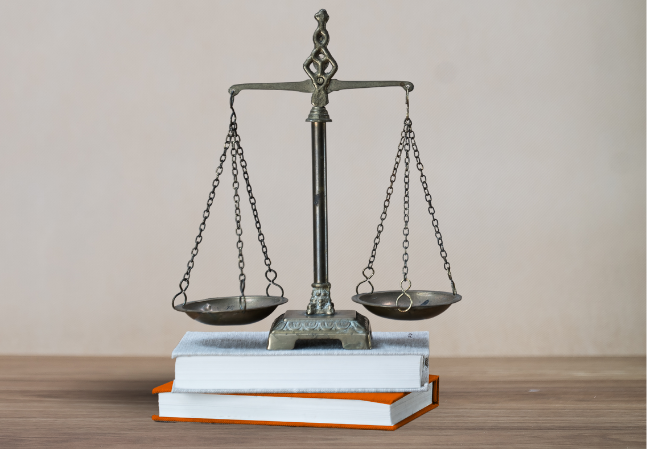- videocam Live Online with Live Q&A
- calendar_month November 20, 2025 @ 1:00 p.m. ET./10:00 a.m. PT
- signal_cellular_alt Intermediate
- card_travel Class Action and Other Litigation
- schedule 90 minutes
Securities Class Certification Under Inflation-Maintenance Theory: Rebutting Price Impact
Applying Goldman; Lessons From San Diego County Employees Retirement Association v. Johnson & Johnson
Welcome! Strafford is now BARBRI! The expert courses you know from the trusted global leader in legal education.
Description
Rule 10b-5 securities class actions filed after an adverse company event are on the rise. Plaintiffs routinely proceed, as they did in the J&J case, under an "inflation-maintenance" or a “price-maintenance” theory: the company made misrepresentations (or withheld/delayed disclosures) to keep share prices from falling.
To get a securities fraud class certified, plaintiffs must show that "reliance" on the alleged misrepresentations can be proved on a class-wide basis. Basic Inc. v. Levinson, 485 U.S. 224 (1988), created a rebuttable presumption of class-wide reliance if plaintiffs bought their shares in an "efficient" market at market price after the alleged misstatements were publicly made but before the truth was revealed. If defendants can show that the alleged misrepresentations had no price impact on the stock, the Basic presumption of class-wide reliance is rebutted, and the class will not be certified.
What evidence defendants need, whether they have to show zero price impact, and what evidence courts may consider in deciding price impact at the certification stage, particularly in inflation-maintenance cases, are crucial, complex, and developing issues. The Supreme Court's decision in Goldman Sachs Group Inc. v. Arkansas Teacher Retirement Sys., 594 U.S. 113 (2021), broke new ground by holding that courts may consider the generic nature of the alleged misrepresentations. This led the Second Circuit to conclude, on remand, that defendants adequately showed the misrepresentations had no price impact, and it went on to de-certify the class.
The second appellate court to apply Goldman, in J&J, focused on whether the subsequent corrective disclosures did or did not actually correct anything and how courts should decide that as well as whether the defendants' evidence met the preponderance of the evidence standard necessary to rebut the Basic presumption. Defendants have contended, however, that the Third Circuit misapplied Goldman and opened the door to "easy" certification.
Listen as the expert panel of class action lawyers discusses rebuttal of price impact in inflation-maintenance / price-maintenance theory class actions.
Presented By

Bio for Annie Attorney; loves horses and arguments -- SAYAN Update

This is a bio for Big Boat. Big Boat is an avid reader and unicyclist.

This is a bio for speaker, Roller Coaster. Roller Coaster enjoys walks on the beach and pizza with pineapple.
-
This 90-minute webinar is eligible in most states for 1.5 CLE credits.
-
Live Online
On Demand
Date + Time
- event
Thursday, November 20, 2025
- schedule
1:00 p.m. ET./10:00 a.m. PT
I. Overview of class certification battlegrounds in securities class action litigation
II. How the Basic presumption operates under inflation-maintenance and price-maintenance theories
III. Lack of price impact by analyzing
A. Standard of proof
B. Goldman SCOTUS decision
C. Goldman on remand
D. J&J
IV. Practical guidance for plaintiffs and defendants
The panel will review these and other important issues:
- Are defendants required to show zero price impact in inflation-maintenance cases?
- Does the J&J decision ignore the "efficient market" principles that underlie the Basic presumption?
- How do courts decide if alleged misrepresentations "match" alleged corrective disclosures?
- How does a defendant sever the link between misrepresentation and price?
Unlimited access to premium CLE courses:
- Annual access
- Available live and on-demand
- Best for attorneys and legal professionals
Unlimited access to premium CPE courses.:
- Annual access
- Available live and on-demand
- Best for CPAs and tax professionals
Unlimited access to premium CLE, CPE, Professional Skills and Practice-Ready courses.:
- Annual access
- Available live and on-demand
- Best for legal, accounting, and tax professionals
Unlimited access to Professional Skills and Practice-Ready courses:
- Annual access
- Available on-demand
- Best for new attorneys
Related Courses

ET Test for Extended Coupon Codes
Wednesday, February 4, 2026
1:00 PM E.T.

Monetary Damages for Misappropriation of Trade Secrets: Traditional and New Methodologies for Fair Compensation
1:00 p.m. ET./10:00 a.m. PT

Securities Class Certification Under Inflation-Maintenance Theory: Rebutting Price Impact
Thursday, November 20, 2025
1:00 p.m. ET./10:00 a.m. PT
Recommended Resources

Building Your Book: Strategies to Secure Long-Term Success
- Business & Professional Skills
- Career Advancement
- Talent Development


